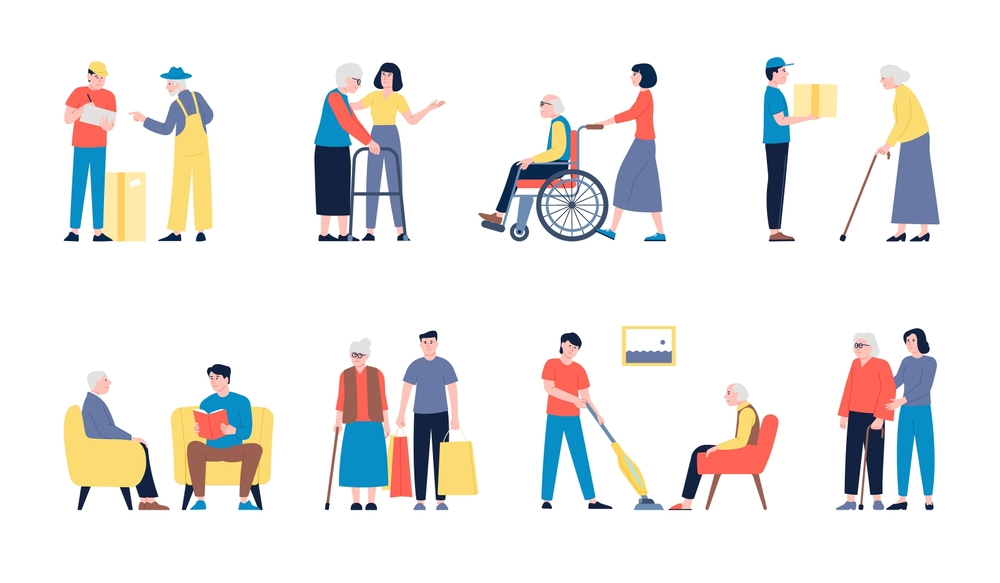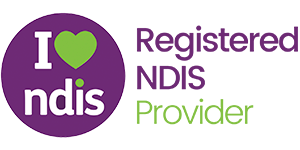Occupational therapy is a vital concept which enhances the lives of people with vulnerabilities elevating independence and overall well-being. It focuses on tailored strategies and interventions and addresses the unique needs and aspirations of those with impairments, fostering their participation in daily activities.
The National Disability Insurance Scheme (NDIS) is a pivotal platform, providing essential support and resources to empower NDIS participants to achieve their goals. This blog focuses on the relationship between occupational therapy, personalised care, and the transformative role of disability services in Sydney.
The Role of NDIS
The Government of Australia initiated this comprehensive program and has revolutionised the support programs offered to vulnerable individuals. The NDIS operates on the core principle of individualised care, recognising that every individual’s journey is unique. By offering personalised plans, the scheme tailors its services to cater to specific needs and goals, amplifying the independence and participation of its participants.
The NDIS offers different support budgets to access services and provides a holistic approach that encompasses various aspects of life, including healthcare, education, and employment. Through the NDIS, its participants gain access to various services, including NDIS occupational therapy. This allows them to overcome challenges, thrive, and contribute meaningfully to society.
What is Occupational Therapy?
Occupational therapy at the NDIS aims to optimise the quality of life for impaired individuals by addressing their physical, mental, and emotional barriers. This comprehensive approach determines an individual’s condition and works on their abilities to perform better.
Occupational therapists collaborate with individuals to identify their unique goals and needs, tailoring interventions that facilitate their participation in daily activities. They work towards restoring, developing, or adapting essential skills that enable individuals to lead fulfilling lives. It can range from motor skills needed for self-care to cognitive strategies for problem-solving.
Meeting Unique Challenges: The Importance of Tailored Support for NDIS Participants
Understanding Diverse Needs
A reliable NDIS provider in Sydney, such as EnableU, recognises the diversity within the community of NDIS participants. This recognition evaluates the significance of determining specific needs for each NDIS participant. These needs span a wide spectrum, from mobility limitations to communication barriers and cognitive challenges.
Enhancing Daily Lives
Addressing specific needs is necessary as these challenges can profoundly impact daily lives. Mobility issues may restrict independent movement, hindering individuals from participating in routine activities.
Communication difficulties can create feelings of isolation, limiting social interactions and access to essential services. Cognitive challenges may prevent problem-solving abilities, affecting decision-making processes and personal autonomy.
Promoting Overall Well-Being
Understanding and addressing specific needs are crucial to fostering overall well-being. When these needs are not fulfilled, individuals can experience heightened stress, reduced self-esteem, and a declining state of mental health.
Tailored support, such as occupational therapy, ensures that interventions are precisely tailored to address these challenges, enabling participants to regain or enhance their independence, confidence, and engagement with life.
By acknowledging their challenges and tailoring support accordingly, occupational therapists empower individuals to overcome obstacles, achieve their goals, and enjoy a higher quality of life.
Empowering Through Occupational Therapy: NDIS Disability Services and Goal Achievement
Integrated Approach
Occupational therapy is essential for NDIS disability services in Sydney, harmonising seamlessly with its mission of individualised care and empowerment. By aligning with NDIS’s principles, occupational therapy assists in positive change.
Skills Development
Occupational therapists collaborate with NDIS participants to identify their aspirations and challenges. They then craft tailored interventions focusing on skill development, equipping individuals with the tools to navigate their unique obstacles. Whether refining motor skills for daily activities or enhancing cognitive strategies, occupational therapy encourages participants to overcome limitations.
Goal-Centric Plans
Central to both occupational therapy and NDIS is a shared commitment to goal attainment. Occupational therapists work hand in hand with participants, helping them set achievable goals that align with their aspirations. Through targeted interventions and ongoing support, participants can witness their progress, reinforcing a sense of accomplishment and fostering motivation.
Customised Approach to Care
Under the NDIS framework, occupational therapy takes on a deeply personalised approach, epitomising the goal of individual empowerment. Occupational therapists engage in a collaborative journey with participants, crafting NDIS plans that resonate with their needs, capabilities, and aspirations.
This tailoring ensures that every intervention enhances the participant’s quality of life, fosters independence, and enables active engagement in daily activities.
Occupational Therapy Techniques
NDIS Occupational therapy encompasses diverse techniques, each designed to address unique challenges and goals. Assistive devices play a crucial role in overcoming physical limitations, while sensory integration techniques help those with sensory processing difficulties.
Cognitive therapy enhances problem-solving and decision-making skills; skill-building exercises empower participants to master essential tasks. These interventions operate harmoniously to create a holistic approach that elevates physical, cognitive, and emotional well-being, ultimately enabling NDIS participants to live life to the fullest.
Ensuring Holistic Care: Why Collaboration Between Therapists and NDIS Participants is Important?
Successful occupational therapy interventions can be ensured by fostering a compelling connection between therapists, NDIS participants, and their families. This collaboration enables therapists to gain deep insights into participants’ goals, challenges, and aspirations.
By listening attentively, therapists can align therapy goals with these aspirations, ensuring that every intervention is purposeful and directly contributes to the participant’s desired outcomes. The participant’s active involvement, feedback, and input further fine-tune the therapy process, fostering a sense of ownership and motivation.
Therefore, this collaborative approach transforms therapy from a prescribed regimen to a personalised journey. Participants become well aware of the support that can help them achieve goals that resonate with their aspirations.
The Future of Occupational Therapy
As occupational therapy continues to evolve within the NDIS framework, the future promises innovative advancements. Technological innovations like virtual reality and telehealth could enhance therapy accessibility and effectiveness.
Moreover, more emphasis on evidence-based practices and interdisciplinary collaboration is expected, optimising participant outcomes. The connection between occupational therapy and NDIS services is advancing over time which can drive even more tailored, impactful interventions, fostering greater independence, inclusion, and quality of life for individuals with vulnerabilities.
Conclusion
EnableU is a registered NDIS service provider in Sydney to help you discover endless possibilities through our empowering and personalised support. We offer a complete range of support services with professional and multicultural teams who are experts in providing ultimate care.
Take the first step towards independence, and contact us today to live a meaningful life ahead!







